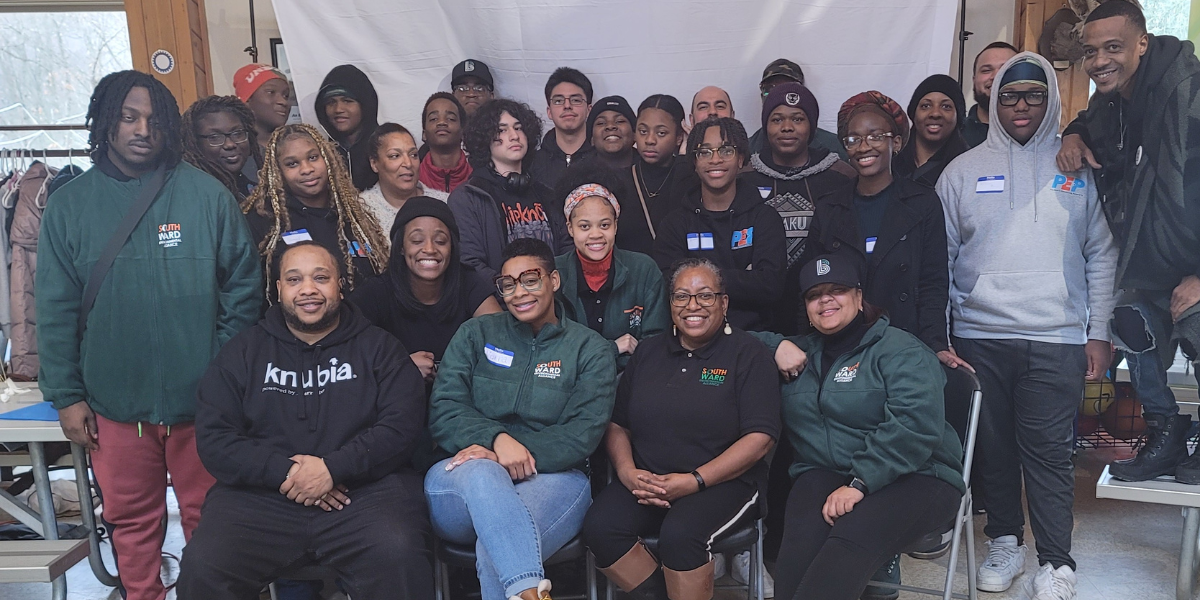The Fight for Environmental Justice: Meet Asada Rashidi
Asada Rashidi, a Newark native, is a passionate environmental justice organizer. Having experienced the detrimental effects of pollution and environmental hazards in her community, she is dedicated to raising awareness and advocating for policies that prioritize public health and sustainability.

Asada Rashidi is a 22-year-old Environmental Justice Organizer for the South Ward Environmental Alliance in the City of Newark. She was born and raised in Newark's South Ward and graduated from Bard High School Early College with an associate's degree in liberal studies. Later on, she received her bachelor's degree in environmental studies from Spelman College in the spring of 2021. Growing up, Rashidi was surrounded by health professionals and community activists who taught her the importance of mind and body wellness. This played a significant role in her decision to become an environmental advocate in her hometown.
COVID-19 and the Importance of Environmental Justice
Rashidi dedicated herself to championing environmental justice and serving her community during the initial outbreak of COVID-19. As a recent college graduate, she was a community organizer for Southward Environmental Alliance, a non-profit organization based in the South Ward of Newark that advocates for environmental justice. One of her essential responsibilities is to communicate regularly with the residents of Newark regarding the importance of collecting information about environmental issues in urban areas, notably air pollution. However, she faces several challenges in her work. She explains that the biggest problem is that people living in Newark and urban areas generally do not consider environmental justice as crucial as the other daily issues they face. Rashidi mentions how she tries to appeal to her clients' sense of empathy by connecting environmental injustice to essential problems that are important to them.
I am in environmental justice, for example, because I have two brothers with asthma, and the environment directly triggers asthma. Like you have a lot of air pollution, and it's not really good for your respiratory system, and it's especially harsh on those with asthma.
According to ABC7NY, Children in urban communities are more likely to suffer from asthma than their suburban neighbors. This, in turn, makes it more likely for people to be hospitalized for asthma-related complications. Living in urban areas can worsen childhood asthma symptoms. The primary cause of high statistics is the abundance of air pollution and garbage dumps in urban areas nationwide. Environmental injustice is a silent killer affecting residents' quality of life and their close family members, such as their children, nieces, and nephews. These statistics demonstrate the gravity of this issue, making it one of the most critical issues in Newark today, especially in the age of COVID, an airborne disease.
An Essential Worker Making a Difference at a Young Age
When the pandemic began, Rashidi had freshly entered adulthood and was ready to start her life after college. Unfortunately, the pandemic changed all that for her when she was forced to leave her Spelman campus in early April after the pandemic began engulfing the country. As she adjusted to this change, she looked for ways to give back to her community and use the skills she's learned from her mother, an essential worker at Newark Beth Israel Medical Center, to care for patients and aid nurses in intake rooms at the hospital. She said that despite how terrified she was for her safety and her mother's safety, she took the initiative to commit to helping patients in any way she could.
Due to the hospital being on lockdown, with no visitors allowed in the building, a significant amount of the time she spent at Beth Israel was spent comforting patients and making them feel less lonely while they battled the life-threatening virus. She helped take temperatures, monitor vitals, and be on-call for any nurse who needed assistance with a patient. She struggled because she was in the space of death, confusion, and despair. Yet, despite those issues constantly running through her mind on and off the clock, she committed to using her skills to better the lives of patients admitted to the hospital and overwhelmed hospital workers.
A Beam of Light in a Dark Time
When Newark residents needed her most, Rashidi used her courage and boldness to create avenues of help that continue to be helpful today. As an organizer, a Newark resident, and a person committed to social justice, the pandemic was a unique opportunity to show her commitment to the community she loved the most. COVID-19 may have changed the daily operations of society. Still, instead of using that time to distance herself from the community, Rashidi inspires and advocates for change in her role throughout the city. The pandemic has taught that regardless of how impossible it seems to foster community in a time of isolation, those dedicated to justice can build a community simply by will and empowerment.
Last November, Rashidi was chosen to be part of the United States Environmental Protection Agency's first-of-its-kind National Environmental Youth Council to fight for environmental justice.
Congratulations to Asada Rashidi from Newark!! She was chosen to be part of the @EPA’s first-of-its-kind National Environmental Youth Council to fight for environmental justice. pic.twitter.com/hvjhGuxuiU
— Congressman Donald M. Payne, Jr. (@RepDonaldPayne) November 16, 2023
X post from Congressman Donald M. Payne, Jr. congratulating Asada Rashidi on being selected to the EPA's National Environmental Youth Council.
The author of this story is Fajr Kegler, a Newark native, creative writer, and poet.